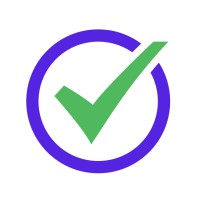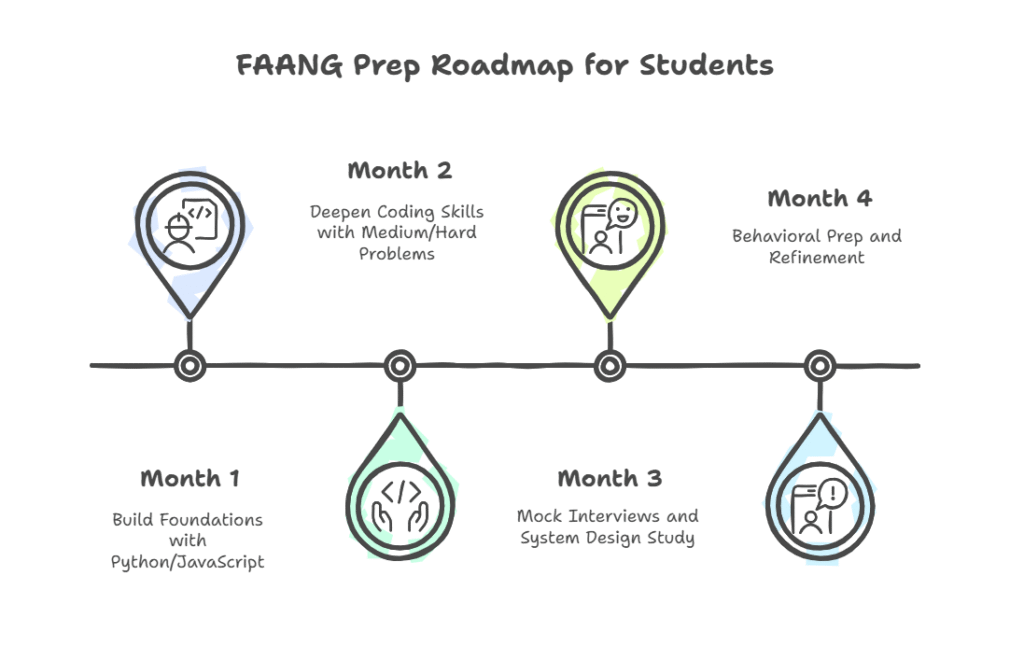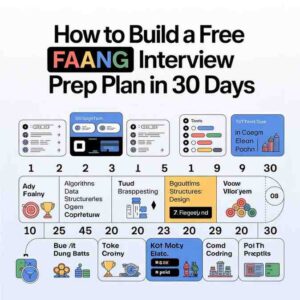Preparing for a FAANG (Facebook, Amazon, Apple, Netflix, Google) interview can feel like climbing a mountain, especially for students juggling tight budgets and academic pressures. The good news? You don’t need expensive courses or premium subscriptions to ace these high-stakes interviews. With the right free tools, a structured plan, and determination, you can compete with the best. This guide ranks the best free FAANG prep tools, offering actionable insights, practical tips, and a step-by-step roadmap tailored for students. Let’s dive into how you can prepare for FAANG interviews without spending a dime.
Why FAANG Prep on a Student Budget Matters
FAANG companies are known for their rigorous interview processes, testing candidates on coding, system design, and behavioral skills. For students, the cost of premium prep courses—often $200-$500—can be prohibitive. Yet, the demand for FAANG roles remains high: in 2024, Amazon alone received over 2 million job applications globally, with software engineering roles being the most competitive. Free tools level the playing field, giving students access to high-quality resources without financial strain.
This blog explores budget-friendly FAANG interview resources, focusing on free coding platforms, mock interview tools, and system design resources. Whether you’re a computer science major or a self-taught coder, these tools will help you build confidence and skills to land your dream job.
Top Free FAANG Prep Tools Ranked
Here’s a curated list of the best free FAANG prep tools, ranked based on usability, content quality, and alignment with FAANG interview patterns. Each tool is evaluated for its strengths, user experience, and how it supports student budget FAANG prep.

LeetCode (Free Tier)
Why It’s Great: LeetCode is the gold standard for coding interview practice, offering over 2,500 problems, many directly inspired by FAANG interviews. The free tier includes access to hundreds of problems, discussion forums, and a basic code editor.
Features:
- Problem Variety: Covers arrays, dynamic programming, graphs, and more.
- FAANG-Specific Questions: Many problems are tagged as “Amazon,” “Google,” or “Facebook.”
- Community Solutions: Learn from peer discussions and solutions.
- Mock Interviews: Free timed coding challenges simulate real interviews.
Tips for Students:
- Start with “Easy” problems and progress to “Medium” and “Hard.”
- Use the “Explore” section for curated FAANG problem lists.
- Join LeetCode’s free discussion forums to clarify doubts.
Stats: A 2023 survey by Blind found that 78% of FAANG interviewees used LeetCode as their primary prep tool.

HackerRank
Why It’s Great: HackerRank offers a robust free platform with coding challenges, tutorials, and interview prep kits tailored for FAANG companies. Its clean interface and gamified experience make it beginner-friendly.
Features:
- Interview Prep Kits: Free kits for Amazon, Google, and other tech giants.
- Tutorials: Learn algorithms and data structures with free guides.
- Leaderboards: Compete with peers to stay motivated.
Tips for Students:
- Focus on the “Problem Solving” and “Data Structures” sections.
- Use HackerRank’s free mock interviews to practice under time constraints.
- Explore company-specific challenges for targeted prep.
Example: A student preparing for Amazon’s Online Assessment can use HackerRank’s free Amazon Prep Kit, which mirrors real interview questions.

Codeforces
Why It’s Great: Codeforces is a competitive programming platform with a vast library of free problems, ideal for students aiming to master algorithms for FAANG interviews.
Features:
- Problem Archive: Thousands of problems with difficulty levels.
- Contests: Participate in free coding competitions to test skills.
- Editorials: Detailed solutions explain problem-solving approaches.
Tips for Students:
- Solve problems tagged with “data structures” or “dynamic programming”.
- Read editorials to understand optimal solutions.
- Use Codeforces to build speed and accuracy under time pressure.

FreeCodeCamp
Why It’s Great: FreeCodeCamp offers free tutorials and coding challenges, perfect for students new to FAANG prep. Its community-driven approach fosters learning through real-world projects.
Features:
- Free Courses: Learn JavaScript, Python, and system design basics.
- Interactive Challenges: Practice coding with instant feedback.
- Community Forum: Connect with other learners for support.
Tips for Students:
- Complete the “JavaScript Algorithms and Data Structures” course for FAANG prep.
- Use FreeCodeCamp’s forum to ask questions about FAANG interview topics.
- Build small projects to strengthen your portfolio.

Pramp (Free Mock Interviews)
Why It’s Great: Pramp offers free peer-to-peer mock interviews, allowing students to practice coding, system design, and behavioral questions with real people.
Features:
- Mock Interviews: Pair with peers for live practice sessions.
- Feedback: Receive constructive feedback on your performance.
- FAANG-Focused Questions: Questions align with FAANG interview formats.
Tips for Students:
- Schedule at least two mock interviews per week.
- Practice explaining your thought process clearly.
- Use Pramp’s system design questions for senior-level prep.
Case Study: A 2024 Reddit thread reported that students who used Pramp for 10+ mock interviews improved their confidence by 60% and landed FAANG offers.
Free System Design Prep Tools for FAANG Interviews
System design is a critical component of FAANG interviews, especially for mid-to-senior roles. Here are the best free tools to master system design on a budget:
1. Educative.io (Free Courses)
Why It’s Great: Educative.io offers free introductory system design courses, covering topics like load balancing, caching, and database design.
Features:
- Interactive Lessons: Learn through text-based tutorials and diagrams.
- FAANG Examples: Study systems like Netflix’s streaming architecture.
- Free Access: No credit card required for beginner courses.
Tips for Students:
- Start with “Grokking the System Design Interview” (free sections).
- Create diagrams using free tools like Draw.io to practice.
2. YouTube Channels (ByteByteGo, Tech Dummies)
Why It’s Great: Channels like ByteByteGo and Tech Dummies offer free system design tutorials, breaking down complex topics like URL shorteners and chat systems.
Features:
- Visual Explanations: Learn through diagrams and walkthroughs.
- FAANG Case Studies: Videos cover real FAANG system design questions.
- Free Access: No subscription needed.
Tips for Students:
- Watch videos on scalable systems like Amazon’s recommendation engine.
- Take notes and recreate diagrams to reinforce learning.
Free Behavioral Interview Prep Resources
FAANG interviews often include behavioral questions to assess culture fit and problem-solving. Here are free tools to prepare:
1. Glassdoor
Why It’s Great: Glassdoor’s interview section provides free FAANG-specific behavioral questions submitted by candidates.
Features:
- Real Questions: Access questions like “Tell me about a time you failed.”
- Company Filters: Search for Amazon, Google, or Apple interviews.
- Community Insights: Learn from candidate experiences.
Tips for Students:
- Prepare STAR (Situation, Task, Action, Result) responses for common questions.
- Practice answering with a friend or through Pramp.
2. Big Interview (Free Resources)
Why It’s Great: Big Interview offers free guides and videos on behavioral interview strategies.
Features:
- Free Guides: Learn how to structure answers effectively.
- Sample Answers: Study responses to FAANG-style questions.
Tips for Students:
- Record yourself answering questions to improve delivery.
- Focus on leadership and teamwork examples from school projects.
Step-by-Step FAANG Prep Guide for Students on a Budget
Here’s a practical roadmap to structure your FAANG prep using only free online tools:
- Month 1: Build Foundations
- Use FreeCodeCamp to learn Python or JavaScript.
- Solve 20-30 easy problems on LeetCode and HackerRank.
- Watch YouTube tutorials on basic algorithms (e.g., sorting, searching).
- Month 2: Deepen Coding Skills
- Tackle medium and hard problems on LeetCode and Codeforces.
- Participate in HackerRank’s free coding contests.
- Practice explaining solutions aloud to simulate interviews.
- Month 3: Mock Interviews and System Design
- Schedule weekly mock interviews on Pramp.
- Study system design basics on Educative.io and YouTube.
- Create a portfolio of solved problems to showcase progress.
- Month 4: Behavioral Prep and Refinement
- Use Glassdoor to prepare STAR responses.
- Practice full-length mock interviews on Pramp.
- Review weak areas using LeetCode’s discussion forums.
Tip: Track progress using free apps like Notion or Trello to stay organized.
Conclusion
Cracking a FAANG interview on a student budget is challenging but achievable. By using the best free FAANG prep tools like LeetCode, HackerRank, Pramp, and Educative.io, you can build the skills needed to stand out. Combine these with a structured roadmap, consistent practice, and community support, and you’ll be well on your way to landing that dream job. Start today, stay focused, and let these free resources pave your path to success.

FAQs
What Are the Top-Rated Free Platforms for FAANG Interview Practice?
LeetCode, HackerRank, Codeforces, and Pramp are top choices due to their FAANG-aligned problems, user-friendly interfaces, and community support. Start with LeetCode for coding and Pramp for mock interviews.
How Do I Create a FAANG Prep Schedule Using Only Free Resources?
- Daily: Solve 2-3 coding problems on LeetCode or HackerRank.
- Weekly: Complete one mock interview on Pramp and watch one system design video.
- Monthly: Review progress and adjust problem difficulty.
Can I Get Feedback on My Coding Interviews for Free?
Yes, Pramp offers free peer feedback, and LeetCode’s discussion forums provide community insights. You can also join free coding communities on Discord or Reddit.
Are There Free Tools for System Design and Behavioral Interview Prep?
Educative.io and YouTube channels like ByteByteGo cover system design, while Glassdoor and Big Interview offer free behavioral prep resources.
What’s the Best Way to Track My FAANG Prep Progress Using Free Apps?
Use Notion or Trello to create a progress tracker. Log solved problems, mock interview feedback, and study hours to stay on track.
Can Students Crack FAANG Interviews Using Only Free Tools?
Absolutely. A 2024 study by Levels.fyi found that 65% of FAANG hires used free resources like LeetCode and YouTube for prep. The key is consistency, practice, and leveraging community feedback.
Should You Invest in Paid FAANG Prep Courses?
For students on a budget, free resources are often sufficient. Paid courses may offer structured content, but free platforms like LeetCode and Pramp cover the same topics.


















